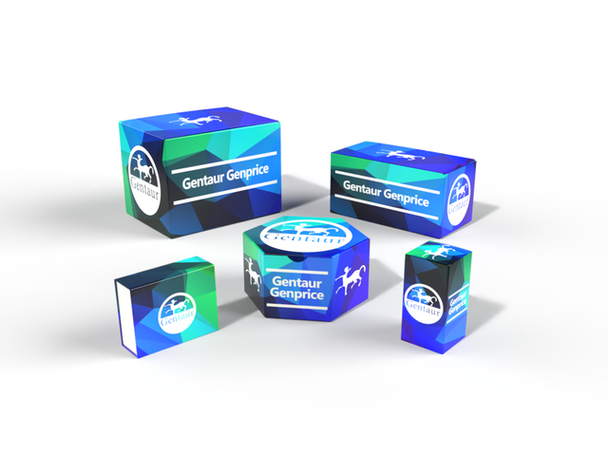740
Human Retinoic acid receptor RXR-gamma (RXRG) ELISA Kit | AE59829HU
- SKU:
- 740-AE59829HU
- Availability:
- Usually ships in 5 working days
Description
Human Retinoic acid receptor RXR-gamma (RXRG) ELISA Kit | AE59829HU | Gentaur UK, US & Europe Distribution
Species Reactivity: Human (Homo sapiens)
Abbreviation: RXRG
Alternative Name: NR2B3; RXRC; retinoic acid receptor RXR-gamma|retinoid X receptor-gamma
Application: ELISA
Range: 0.156-10 ng/mL
Sensitivity: 0.071 ng/mL
Intra-Assay: ≤4.9%
Inter-Assay: ≤7.4%
Recovery: 0, 99
Sample Type: Serum, Plasma, Other biological fluids
Detection Method: Sandwich
Analysis Method : Quantitive
Test Principale: This assay employs a two-site sandwich ELISA to quantitate RXRG in samples. An antibody specific for RXRG has been pre-coated onto a microplate. Standards and samples are pipetted into the wells and anyRXRG present is bound by the immobilized antibody. After removing any unbound substances, a biotin-conjugated antibody specific for RXRG is added to the wells. After washing, Streptavidin conjugated Horseradish Peroxidase (HRP) is added to the wells. Following a wash to remove any unbound avidin-enzyme reagent, a substrate solution is added to the wells and color develops in proportion to the amount of RXRG bound in the initial step. The color development is stopped and the intensity of the color is measured.
Product Overview: RXR-gamma), also known as NR2B3 (nuclear receptor subfamily 2, group B, member 3) is a nuclear receptor encoded by the RXRG gene. This gene encodes a member of the retinoid X receptor (RXR) family of nuclear receptors which are involved in mediating the antiproliferative effects of retinoic acid (RA) . This receptor forms homodimers with the retinoic acid, thyroid hormone, and vitamin D receptors, increasing both DNA binding and transcriptional function on their respective response elements. This gene is expressed at significantly lower levels in non-small cell lung cancer cells. Alternate transcriptional splice variants, encoding different isoforms, have been characterized.
Stability: The stability of ELISA kit is determined by the loss rate of activity. The loss rate of this kit is less than 5% within the expiration date under appropriate storage condition. The loss rate was determined by accelerated thermal degradation test. Keep the kit at 37°C for 4 and 7 days, and compare O.D.values of the kit kept at 37°C with that of at recommended temperature. (referring from China Biological Products Standard, which was calculated by the Arrhenius equation. For ELISA kit, 4 days storage at 37°C can be considered as 6 months at 2 - 8°C, which means 7 days at 37°C equaling 12 months at 2 - 8°C) .






